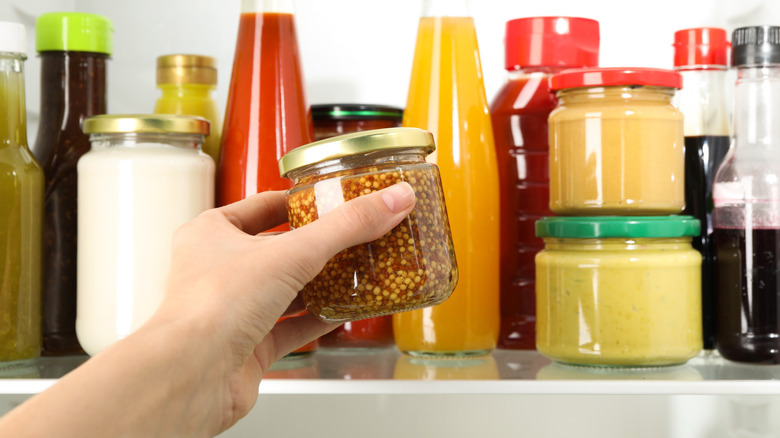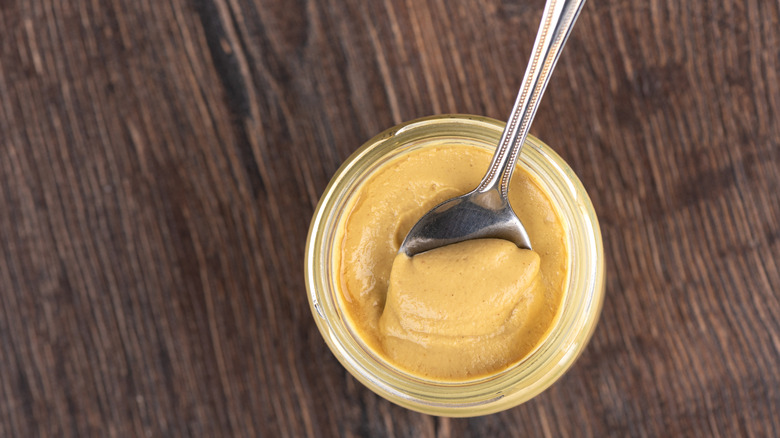Why Your Mustard Is Spoiling Faster Than It Should In Your Fridge
Maybe you use it to amp up your sandwiches, like those made from the healthiest deli meats. Perhaps you squirt it onto your hot dogs, possibly in addition to ketchup. You might even use it to make a shareable dip inspired by deviled egg filling. Whatever the case, you can probably find some reason to keep a bottle of mustard in your fridge. But what's this? When you open up the bottle to check if it's still good, you take a whiff and it smells off. How could this happen? Well, it's possible you weren't cleaning the gunk off the rim of that bottle or jar.
You see, when there's leftover mustard gunk that's built up on the opening, it makes it more difficult to seal the lid tightly. That can, in turn, lead to oxidization and moisture loss, causing it to spoil more quickly. Just by cleaning the gunk off each time you use a jar of mustard, you can remedy this problem.
Mustard takes a long time to expire -- but it doesn't last forever
Now, the good news is that if your mustard goes off a bit, it won't kill you. Mustard is a very acidic substance, made with shelf-stable ingredients like vinegar and, well, mustard seeds (which are naturally antibacterial). But just because it won't poison you if you eat it after its prime doesn't mean it won't taste bad or even lack flavor. And who has time for mustard that tastes off? The whole point of the stuff is to make whatever you're eating taste better!
The best solution is to wipe off the rim of your mustard bottle or jar with a dish cloth or paper towel after every use, so that excess mustard doesn't harden. You can, of course, take additional steps to keep your mustard safe — storing it in the refrigerator, using clean utensils so that you don't get bacteria trapped in the bottle, and so forth. Most kinds of mustard, whether Dijon or honey or whole grain, will last between one to two years in the fridge after opening, so start wiping down those rims to make sure your mustards go the distance.

